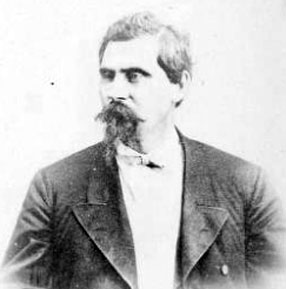The Harp of Broken Strings
A stranger in a stranger land,
Too calm to weep, too sad to smile,
I take my harp of broken strings,
A weary moment to beguile;
And tho no hope its promise brings,
And present joy is not for me,
Still o’er that harp I love to bend,
And feel its broken melody
With all my shattered feelings blend.
I love to hear its funeral voice
Proclaim how sad my lot, how lone;
And when, my spirit wilder grows,
To list its deeper, darker tone.
And when my soul more madly glows
Above the wrecks that round it lie,
It fills me with a strange delight,
Past mortal bearing, proud and high,
To feel its music swell to might.
When beats my heart in doubt and awe,
And Reason pales upon her throne,
Ah, then, when no kind voice can cheer
The lot too desolate, too lone,
Its tones come sweet upon my ear,
As twilight o’er some landscape fair:
As light upon the wings of night
(The meteor flashes in the air,
The rising stars) its tones are bright.
And now by Sacramento’s stream,
What mem’ries sweet its music brings—
The vows of love, its smiles and tears,
Hang o’er this harp of broken strings.
It speaks, and midst her blushing fears
The beauteous one before me stands!
Pure spirit in her downcast eyes,
And like twin doves her folded hands!
It breathes again—and at my side
She kneels, with grace divinely rare—
Then showering kisses on my lips,
She hides our busses with her hair;
Then trembling with delight, she flings
Her beauteous self into my arms,
As if o’erpowered, she sought for wings
To hide her from her conscious charms!
It breathes once more, and bowed in grief,
The bloom has left her cheek forever,
While, like my broken harp-strings now,
Behold her form with feeling quiver!
She turns her face o’errun with tears,
To him that silent bends above her,
And, by the sweets of other years,
Entreats him still, oh, still to love her!
He loves her still—but darkness falls
Upon his ruined fortunes now,
And ’t is his exile doom to flee.
The dews, like death, are on his brow,
And cold the pang about his heart
Oh, cease—to die is agony:
’T is more than death when loved ones part!
Well may this harp of broken strings
Seem sweet to me by this lonely shore.
When like a spirit it breaks forth,
And speaks of beauty evermore!
When like a spirit it evokes
The buried joys of early youth,
And clothes the shrines of early love,
With all the radiant light of truth!
This poem is in the public domain. Published in Poem-a-Day on November 27, 2022, by the Academy of American Poets.
“The Harp of Broken Strings” was first published in the Marysville Herald in 1850. As Robert Dale Parker, professor of English and American Indian studies at the University of Illinois, notes in Changing Is Not Vanishing (University of Pennsylvania Press, 2011), John Rollin Ridge’s “My Harp” is a possible earlier draft of “The Harp of Broken Strings”; as Ryan Carr, an instructor of Indigenous studies at Columbia University’s Center for American Studies, notes in “Lyric X-Marks: Genre and Self-Determination in the Harp Poems of John Rollin Ridge,” published in Melus vol. 43, no. 3 (Fall 2018), the two poems have in common only their “defiant mode[s] of address and [their] concomitant assertion[s] that ‘my harp’ alone is ‘true to me.’” Carr writes that “[‘My Harp’], composed in highly regimented tetrameters, defies and even insults its readers as a means of reveling in its own poetic virtuosity,” whereas “[‘The Harp of Broken Strings’], composed in liltingly irregular stanzas, envisions poetry as a form of therapeutic reflection capable of transmuting historical and interpersonal traumas into a form of utterance that is both beautiful and true.” The opening line, “A stranger in a stranger land,” alludes to a quote by Moses in Exodus 2:22, “I have been a stranger in a strange land.”

